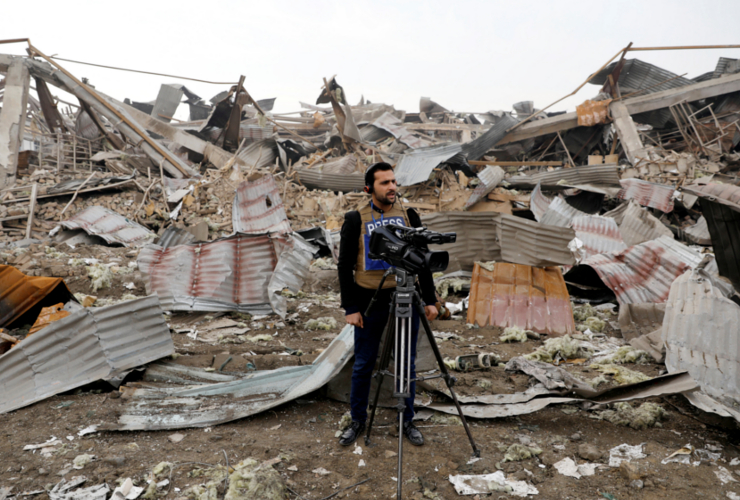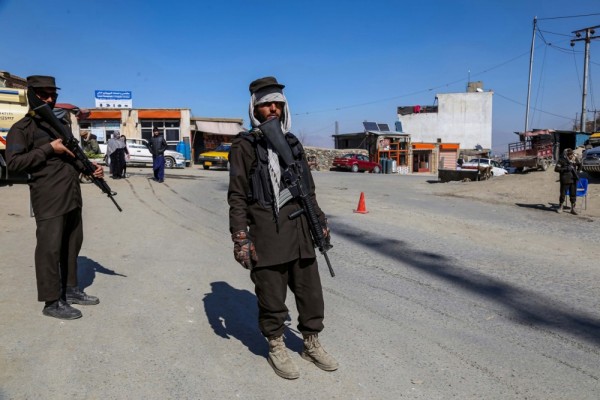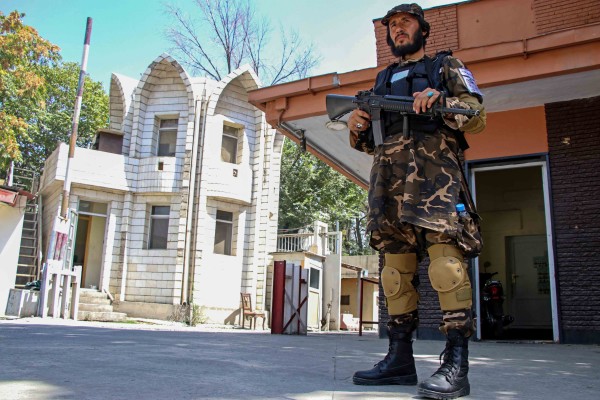The International Press Institute (IPI), a global network of editors, media executives and leading journalists for press freedom, has urged U.S. Special Representative for Afghanistan Reconciliation Zalmay Khalilzad to make the safety of journalists a priority in his ongoing U.S.-Taliban talks.
In a letter to the U.S. special representative, IPI said that media organizations in Afghanistan are caught between the Taliban, whose members rampantly target journalists, and the national government, which encourages media to report about the attacks carried out by the Taliban.
In June this year, the Taliban issued a threat to the Afghan media ordering them to stop carrying anti-Jihad or anti-Taliban reports or else be targeted. All newspapers, radio and television networks were ordered to stop disseminating such news within a week.
At least four journalists have been killed in Afghanistan this year and 13 died last year during attacks in the capital Kabul and elsewhere in the country.
Urging the special representative to prioritize journalist safety in talks with the Taliban, the letter noted that “peace cannot be established without a free and independent media that can function devoid of intimidation and threat to the lives of journalists”.
Read the full letter below.
His Excellency Dr Zalmay Khalilzad
Special Representative for Afghanistan Reconciliation
US State Department
Washington DC 28 August 2019
Threat to journalists in Afghanistan
Your excellency Dr Khalilzad,
The International Press Institute (IPI, a global network of editors, media executives and journalists set up in 1950 at Columbia University to defend press freedom and ensure the safety of journalists, is extremely concerned over the increasing attacks on media workers in Afghanistan and the threat issued by the Taliban to target independent media organizations in the country.
Afghanistan has turned into a graveyard for journalists, a number of whom have been ruthlessly murdered by the Taliban and other armed groups. This year some four journalists have been killed so far and last year 13 of them died in attacks carried out by the Taliban in different parts of the nation, including the capital, Kabul.
In June this year, the Taliban issued a threat to the Afghan media ordering that they stop carrying anti-Jihad or anti-Taliban reports or else they would be targeted. All newspapers, radio and television networks were ordered to stop disseminating such news within a week.
Media organizations in Afghanistan are caught between the Taliban, whose members rampantly target journalists, and the national government, which encourages media to report about the attacks carried out by the Taliban. The much-needed financial support to sustain media organizations comes from the government in the form of advertisements, but the government itself is unable to provide security to the media houses and their staff.
According to our information, besides the attacks by Taliban, journalists are also facing threats from various factions of the Afghan polity. Many Afghan media organizations have resorted to self-censorship because of these threats and the government’s inability to provide adequate security.
We understand that providing security to every journalist and media organization is an uphill task for the government or the UN-mandated International Security Assistant Force. The only way to ensure the safety of journalists is to get the commitment of all the stakeholders in the country.
Your excellency, as you are the special envoy for reconciliation in Afghanistan, we would like to request you to take up the issue of the safety of journalists during your talks with the Taliban as well as with the government in Kabul.
Reconciliation will be possible in true sense when the people of Afghanistan are informed about the steps that you are taking to create peace and bring the Taliban to the mainstream of the national politics. Peace cannot be established without a free and independent media that can function devoid of intimidation and threat to the lives of journalists.
Respectfully,
Ravi R. Prasad
Director of Advocacy
International Press Institute (IPI)



